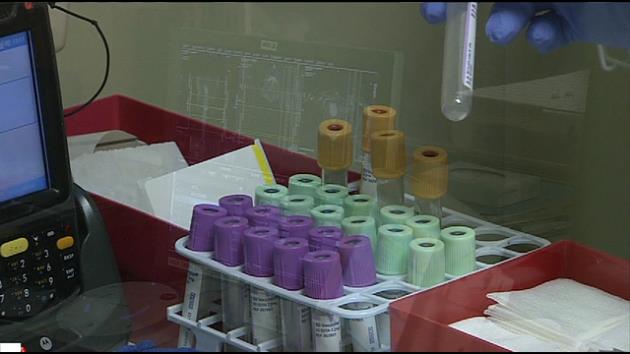We have ways to screen for cancer. But if something looks suspicious, it could take days or even weeks to find out what’s wrong. By then, the disease could have already spread. What if a new test could detect cancer within hours?
WSVN — Five years ago, Carole Thompson wasn’t feeling well.
Carole Thompson: “I was having nosebleeds, vomiting blood.”
Her son rushed her to the hospital.
Carole Thompson: “They started treating me, doing a series of tests.”
It took 10 long, excruciating days before she got the news.
Carole Thompson: “I was diagnosed with multiple myeloma. It’s a blood cancer.”
What if a new test could help doctors diagnosis cancer like Carole’s in just a few hours?
Carole Thompson: “It would stop a lot of pain and suffering for a lot of families.”
Researchers have created a test that could do just that and tell doctors exactly what type of cancer a person has so they could start treatment immediately.
It’s called MSI, or mass spectrometry imaging. Instead of a doctor analyzing tissue samples, a computer is used to scan thousands of chemical components in the blood to see if there are abnormal cells present.
Dr. Atif Hussein: “The question is, if we find those cells or chemicals that we determine are abnormal, then what does that mean?”
Memorial Oncologist Atif Hussein says there’s no question that early detection saves lives. However, Hussein also said, that a test like this could create a lot of false positives.
Dr. Atif Hussein: “Does that mean that those cells are actually going to create cancer, and if they do create cancer, is it going to in a year, 10 years, 20 years?”
Scientists who developed the technology say, since it’s based on numerical data rather than a specialist’s eyes, doctors can learn more in one test than what would show after weeks of many tests.
That’s important to cancer patient Nancy Harrod.
Nancy Harrod: “I get chemo seven days out of every 28.”
She believes her cancer is genetic. She doesn’t want her children to have to battle it one day.
Nancy Harrod: “I have two sons and five grandchildren. What if I pass this on?”
Dr. Hussein calls the new technology promising, but says only more studies and clinical trials will tell.
Dr. Atif Hussein: “We are probably decades away from defining its potential roles and its pluses and minuses.”
Right now, the blood test is only being researched overseas. Doctors say it will eventually end up here in the states.
FOR MORE INFORMATION:
Visit Memorial Healthcare System:

